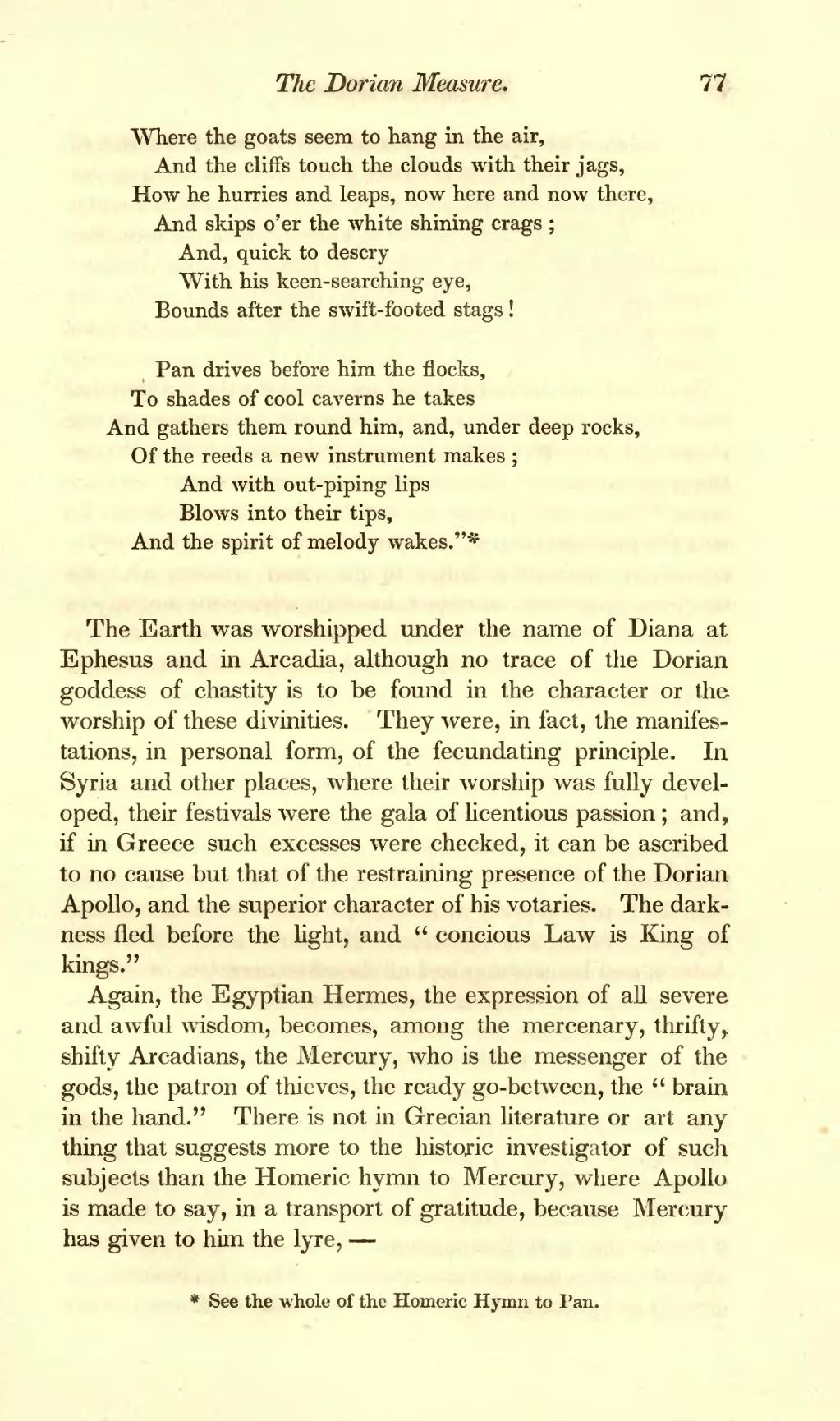Where the goats seem to hang in the air,
And the cliffs touch the clouds with their jags,
How he hurries and leaps, now here and now there,
And skips o er the white shining crags;
And, quick to descry
With his keen-searching eye,
Bounds after the swift-footed stags!
Pan drives before him the flocks,
To shades of cool caverns he takes
And gathers them round him, and, under deep rocks,
Of the reeds a new instrument makes;
And with out-piping lips
Blows into their tips,
And the spirit of melody wakes."[1]
The Earth was worshipped under the name of Diana at Ephesus and in Arcadia, although no trace of the Dorian goddess of chastity is to be found in the character or the worship of these divinities. They were, in fact, the manifestations, in personal form, of the fecundating principle. In Syria and other places, where their worship was fully developed, their festivals were the gala of licentious passion; and, if in Greece such excesses were checked, it can be ascribed to no cause but that of the restraining presence of the Dorian Apollo, and the superior character of his votaries. The darkness fled before the light, and "concious Law is King of kings."
Again, the Egyptian Hermes, the expression of all severe and awful wisdom, becomes, among the mercenary, thrifty, shifty Arcadians, the Mercury, who is the messenger of the gods, the patron of thieves, the ready go-between, the "brain in the hand." There is not in Grecian literature or art any thing that suggests more to the historic investigator of such subjects than the Homeric hymn to Mercury, where Apollo is made to say, in a transport of gratitude, because Mercury has given to him the lyre,—
- ↑ See the whole of the Homeric Hymn to Pan.
